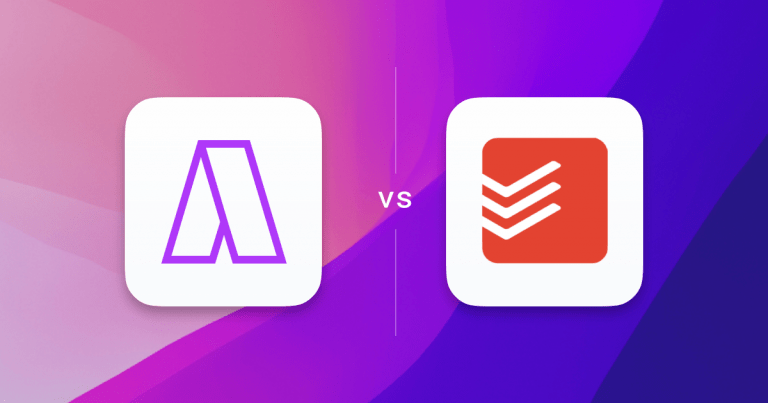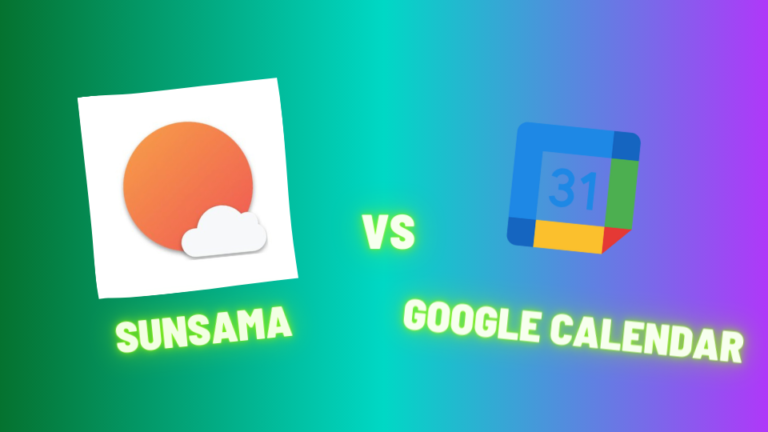What is Sunsama
Sunsama is a distinctive task and calendar management tool that stands out for its holistic approach to planning and productivity. Designed for professionals and teams, it combines the elements of a daily planner, task manager, and calendar into one integrated platform. Sunsama’s unique feature is its ability to help users plan their day by dragging tasks into a daily schedule, encouraging a more mindful and intentional approach to work. This integration of tasks with calendar events allows for a clear visualization of the day ahead, fostering better time management and focus. Sunsama’s emphasis on daily planning and reflection makes it particularly appealing for those who seek a more structured and balanced approach to their professional life.
Key Features of Sunsama
- Task Dashboard: Consolidates tasks from various apps like ClickUp, Notion, and Gmail into one view, reducing the need to switch contexts frequently.
- Guided Planning & Hand Holding: This feature assists in planning by helping refine tasks, align them with weekly objectives, and prevent overloading of the to-do list.
- Focus Mode & Meeting Notes: Offers a clean design and functionality for focused work, including a timer and space for making notes during meetings.
- Integration with Multiple Tools: Sunsama can connect with tools like Todoist, Trello, Asana, ClickUp, Notion, Jira, GitHub, Gmail, Outlook, and Slack.
- Efficient Task Management: The app allows effective management of tasks with features like time-blocking and linking back to the original task for completion tracking.
- User-Friendly Interface: The app’s design emphasizes ease of use and minimalism, contributing to a more mindful and focused task management experience.
What is Google Calendar
Google Calendar is free-to-use calendar application that excels in event planning, appointment scheduling, and integrating seamlessly with Google’s suite of services including Docs, Meet, and Tasks. It boasts features such as easy event scheduling, comprehensive integration with other Google services, sharing and collaboration tools, mobile access, automatic syncing across devices, customization options, and support for recurring events. Additionally, it offers functionalities like invitations and RSVP tracking, reminders, time management tools, search capabilities, holiday calendars, and weather integration for upcoming events.
Key Features of Google Calendar
- Seamless Integration with Google Services: Google Calendar is tightly integrated with Google’s ecosystem, including Gmail for event invitations, Google Meet for video conferencing directly from calendar invites, and Google Tasks for task management. This integration enhances productivity by keeping all tools in one accessible location.
- Easy Event Scheduling and Sharing: The platform enables users to quickly add events, set reminders, and share their calendars with others. This feature is designed to facilitate collaboration and ensure that scheduling meetings or events is a hassle-free process, making it ideal for both personal and professional use.
- Customizable Views and Event Colors: Users can customize their calendar views (day, week, month, or year) and assign colors to different events, making it easier to manage and visually distinguish between various types of appointments or tasks at a glance.
- Recurring Events and Reminders: Google Calendar supports the creation of recurring events and configurable reminders, which can be set to notify users via email or pop-up messages. This ensures that important dates are not missed and helps in establishing routines.
- Mobile Accessibility and Offline Support: With its mobile app, Google Calendar offers the convenience of accessing and managing your schedule on the go. Additionally, offline support means you can view your calendar and receive notifications even without an internet connection.
- Time Zone Support and Working Hours: This feature is particularly useful for those working across different time zones, as it automatically adjusts meeting times accordingly. Setting working hours also helps in managing availability, preventing meetings from being scheduled outside of these times.
Sunsama vs Google Calendar: Features
| Features | Sunsama | Google Calendar |
|---|---|---|
| Integrations | Includes Zoom, Notion, Jira, ClickUp, Trello, Asana, Todoist, Outlook, Gmail, Github, and Slack. | ClickUp, Google Tasks, Zoom, Slack, Salesforce, Google Docs |
| Calendar | Offers various calendar views including day, three days, weekdays, week, and month views. | Yes |
| Platforms | Available as a desktop app, mobile app (iOS and Android), and web app. | macOS, iOS, Android, Web |
| Task Management | Features task types like normal daily tasks, objectives, and a backlog. Offers detailed task options such as notes, start and due dates, recurring tasks, and more. | NA for Calendar |
| Natural Language Processing | No | Yes |
| Time Blocking | Available | Yes |
| Analytics | Provides weekly workload analytics based on completed tasks. | No |
| Meeting Scheduler | Yes | Yes |
| Time Zones | Yes | Yes |
| Reminders | Yes | Yes |
| Customer Support | Average | Average |
| 1:1 User Onboarding | No | No |
| Pricing | $16 per month, annually. | Free to use |

Sunsama vs Google Calendar: Pricing
Sunsama Pricing
Sunsama offers two main pricing plans. They have a yearly subscription priced at $16 per month, billed annually, and a monthly subscription priced at $20 per month. Additionally, they offer a 14-day free trial without requiring a credit card.
Google Calendar Pricing
Free to use
Sunsama vs Google Calendar: Reviews
Sunsama Review
Sunsama is a task management and daily planner tool that focuses on integrating tasks from various applications into a single dashboard. Its standout features include a user-friendly interface, guided planning, and focus mode for enhanced productivity. However, it may not be suitable for those who require more advanced project management features or extensive customization options. Additionally, the pricing might be a bit steep for individual users or small teams.
Google Calendar Review
Google Calendar is praised for its seamless integration with Google’s ecosystem, offering easy scheduling, comprehensive reminders, and mobile accessibility. It excels in simplicity and functionality, fitting both personal and professional use. However, it might lack advanced project management features found in dedicated tools, and some users may find its interface less customizable compared to specialized calendar apps.
Which One Should You Pick
Consider Sunsama if
- You Need Integration with Existing Tools: Sunsama could be right for you if you rely on various apps for task management and seek a tool that consolidates them in one place.
- Focused Daily Planning Appeals to You: If you prefer a guided approach to daily planning, Sunsama’s features can help, although it might not be ideal for those needing in-depth project management tools.
- Minimalist Interface is Your Preference: Sunsama’s user-friendly and clean design is great for focused work, but it may not suit those looking for extensive customization options.
Consider Google Calendar if
- You seek simplicity and integration with Google’s suite for straightforward scheduling needs, though it may lack the depth in task management features found in more specialized tools.
- Your workflow benefits from easy access and sharing capabilities across devices, though it might not offer the advanced customization options of some competitors.
- You value the convenience of mobile access and automatic syncing, keeping in mind that users looking for comprehensive project management tools may find it limiting.
Best Sunsama and Google Calendar Alternative
Akiflow: Akiflow is a time management app offering time blocking, task scheduling, and integrations with various tools. It focuses on productivity and organization through a unified task and appointment interface.
Akiflow Price: $19 per month, paid annually

Best Time Blocking Web and Desktop Apps, 2024
Explore the best time blocking apps of 2024! Discover how Akiflow, TickTick, Usemotion, Sunsama, Sortedapp, and TimeHero revolutionize productivity, offering unique features for professionals and students to manage tasks and enhance efficiency.

Improve Focus: 5 ADHD Productivity Tools & Calendar Apps for 2023
Discover five of the best apps and tools for those with ADHD, from note-taking apps to time-blocking platforms. Get ready to stay organised, motivated and on track with Akiflow’s essential guide.

The Top 3 Todoist Alternatives (In-Depth Review)
Over 25 million people now use Todoist to stay on track and plan their day. It has expanded rapidly and is now a widely used task manager with seamless integrations into other task and calendar managers like Akiflow. While Todoist is hugely popular among its wide user base, there are now a variety of Todoist […]

